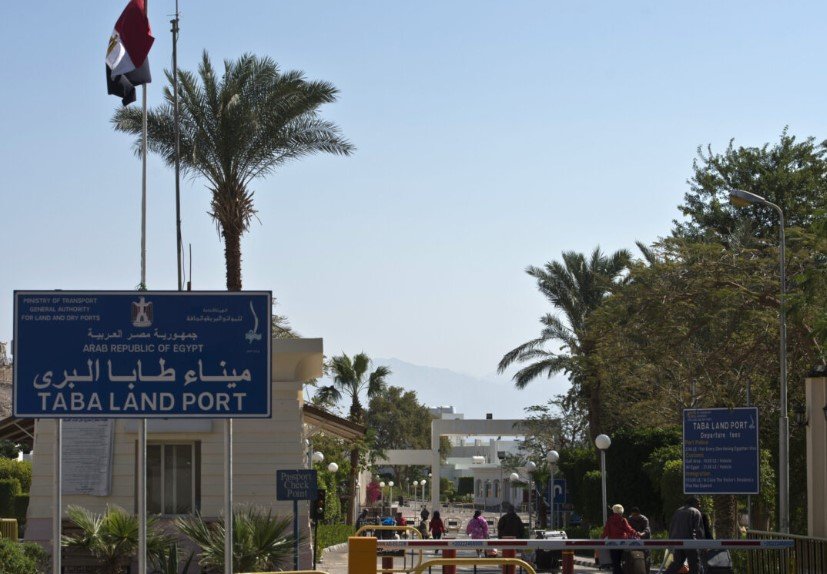Developers brace for higher construction costs, currency swings, and shifting demand as buyers turn to property for safety—but at what price?
As tensions flare between Iran and Israel, Egypt’s property market finds itself caught in the middle—quite literally and economically. While real estate remains one of the country’s most bankable sectors, developers and analysts are growing uneasy. Some call it a temporary tremor, others are bracing for a full-blown aftershock.
A war of missiles miles away has turned into a real estate dilemma at home. Buyers are still interested, but developers are starting to flinch at the mounting risks—particularly with building materials, currency fluctuations, and political nerves all tightening at once.
Demand Is There, But Costs Are Creeping Up
On the surface, nothing looks unusual. Sales offices are still open. Billboards advertising waterfront villas on the North Coast still dot the highways. But dig a little deeper, and the mood feels… uneasy.
Developers say that while buyer appetite hasn’t disappeared, the way business is done is already changing.
Instead of chasing flashy sales numbers, many are focusing on making sure projects get delivered. On time. As promised.
One developer in New Cairo put it bluntly: “What good is a sold-out project if you can’t lay the bricks?”
That’s where the pinch is most obvious. The prices of essential construction materials—steel, cement, aluminum—have started inching up again. And with oil trading erratically thanks to the possibility of conflict spreading to the Strait of Hormuz, shipping costs could be next.
And once that happens, the whole house of cards gets a little shakier.

Currency Pressures and Pricing Puzzles
Real estate thrives in Egypt largely because of its role as a hedge against inflation. For wealthy Egyptians and diaspora buyers, putting money in bricks and mortar feels safer than betting on the pound.
But even this tried-and-true rule has its limits.
Currency devaluation worries are lurking in every pricing meeting. If the pound takes another hit, construction costs go up. But raising unit prices might scare off buyers already feeling squeezed by economic uncertainty.
Some developers are postponing new launches until the smoke clears.
• “If conflict drags on or worsens, we may have to rethink pricing across entire portfolios,” one senior executive at a top real estate firm told Daily News Egypt.
And that’s not even considering the cost of imported materials, many of which are paid in dollars. Developers either take the hit—or pass it on to buyers.
A Safe Haven, But With Strings Attached
Strangely enough, war boosts real estate demand in certain situations.
Buyers looking for security during volatile times often flock to property. It’s tangible. It holds value. You can rent it out. It won’t vanish like a stock.
“Egyptians have a historic love for real estate during crises,” said real estate economist Ayman Abdallah. “It’s not about making profits. It’s about not losing everything.”
But this flight to safety has strings attached.
A rush in demand can lead to speculative bubbles. And those bubbles tend to burst when costs rise faster than people’s ability to pay.
Not to mention, developers struggling with delivery delays may not be able to meet this sudden spike in interest.
Strait of Hormuz and Its Domino Effect
If there’s one phrase that keeps coming up in boardroom discussions—it’s this one: Strait of Hormuz.
Roughly 20% of global oil flows through this strategic chokepoint. If it’s blocked, even briefly, oil prices could skyrocket.
And that spells big trouble for construction.
A delay in oil shipments means delays in everything from asphalt to logistics costs. Developers say any disruption in that corridor will ripple all the way into Cairo’s real estate timeline.
Here’s how industry insiders estimate the potential domino effect:
| Factor Affected | Immediate Risk | Long-Term Impact |
|---|---|---|
| Fuel/energy costs | Spike due to oil shock | Higher transport/build costs |
| Imported materials | Slower delivery times | Project delays, higher cost |
| Currency rate | Pound could weaken | Shrinking profit margins |
| Buyer confidence | Initially high | May cool with uncertainty |
Shifting Strategy: From Expansion to Execution
One thing is certain—developers are talking less about “launches” and more about “delivery.”
With margins tightening and buyer confidence balancing on a thread, flashy new masterplans are on pause. Instead, firms are focusing inward.
At least two prominent developers in Egypt’s New Capital have postponed land acquisitions this quarter, citing “external volatility.” Another privately-held firm in Sheikh Zayed has slowed hiring in non-essential departments.
That doesn’t mean real estate is collapsing. But the tone has shifted.
It’s less “grow at any cost” and more “make it through the storm.”
Small Wins, Local Shifts
In the face of import challenges, some developers are turning to local alternatives for materials—particularly locally produced marble, tile, and steel.
These may not always match the aesthetics of European imports, but in a cost-sensitive environment, “good enough” might be the new “luxury.”
Developers also say they’re renegotiating terms with suppliers, requesting longer payment windows or more flexible delivery schedules.
There’s a noticeable shift from long-term planning to short-term problem-solving.
Cautious Optimism, But Watch That Fuse
Still, despite the uncertainty, most players believe Egypt’s property sector will weather the storm—unless things explode beyond the region.
If the Israel-Iran conflict remains limited, analysts expect only temporary disruptions. But if it pulls in major oil-producing countries or leads to prolonged instability, Egypt’s real estate machine could face a very different kind of slowdown.
